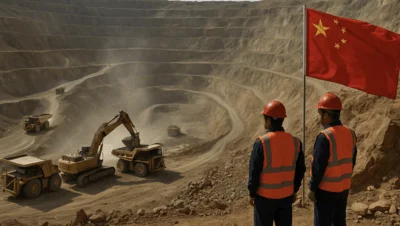Washington, D.C. - Energy and Commerce Ranking Member Frank Pallone, Jr. (D-NJ) delivered the following opening remarks today at a Subcommittee on Energy hearing on “DOE Modernization: Legislation Addressing Development, Regulation, and Competitiveness of Advanced Nuclear Energy Technologies:"
Today’s hearing will examine four bills addressing a range of topics relating to advanced nuclear energy technologies.
H.R. 1320, the Nuclear Utilization of Keynote Energy Act, introduced by Representatives Kinzinger and Doyle, builds upon a discussion draft that this Subcommittee reviewed in 2016. H.R. 1320 makes several major changes to the Nuclear Regulatory Commission’s (NRC) budgeting process and fee structure. The bill caps corporate support costs at the Commission and puts a ceiling on the fee charged to each nuclear reactor. I appreciate the financial strain the nuclear industry is facing and the carbon-free energy it provides. However, I am concerned that these budgetary changes could arbitrarily limit the resources the NRC needs and adversely affect its ability to do its job.
I also have questions about section 7 of the bill, which sets up an expedited timeline for review of nuclear reactors at the NRC. The bill provides 24 months to complete a draft environmental impact statement and 42 months to complete the technical review process. Inflexible deadlines could jeopardize the environmental and safety review process for more complex applications. I am also concerned with a provision in this section that requires NRC to issue a construction permit for a nuclear facility even if an entity has filed a formal request for a hearing objecting to the project. Stakeholders should have the chance to voice their concerns publicly before a project permit is issued.
Despite my issues with those sections of the bill, I am supportive of setting a deadline for the NRC to finish its decommissioning rulemaking and removing advanced nuclear reactor work at NRC from the fee recovery requirement. I look forward to working with my colleagues on this bill as we move forward in the process.
The Committee will also review a discussion draft from Rep. Johnson that makes changes to the process by which the Secretary of Energy authorizes the transfer of unclassified nuclear energy technology and assistance to foreign countries. This is known as the Part 810 process. I appreciate that this process must function well for the U.S. to remain competitive in the commercial nuclear space. But, the bill establishes a 30-day time frame for the Secretary to approve the transfer of certain “low proliferation risk" nuclear technologies to countries that are not nuclear weapons states.
Unfortunately, President Trump has put us on the path to upend the current dynamic of nuclear weapons proliferation across the globe. The President has walked away from the Iran deal, and now Saudi Arabia has said that if Iran restarts its nuclear program, Saudi Arabia will itself pursue building nuclear weapons. I am uncomfortable with expediting the review process for Part 810 at a time when there is so much global uncertainty on nuclear proliferation. This is not the right time to address this issue.
Next, the Committee will consider a discussion draft from Rep. Flores to accelerate the availability of High Assay Low Enriched Uranium. This is the fuel needed for most advanced nuclear reactor designs. It is not commercially available today. In order to ensure the fuel is available for advanced reactors once they are licensed and ready to begin producing electricity, the Federal Government will need to coordinate efforts within agencies, and with the commercial nuclear sector. This is a worthy effort, and I look forward to working with the majority on this proposal.
Last, we have a discussion draft that directs the Departments of Energy and Defense to develop a report evaluating the resiliency benefits of siting micro-reactors at critical DOE and DOD infrastructure sites. I believe this report will provide the Committee with valuable information, and commend Representatives Peters and Hudson, as well as my New Jersey colleague, Rep. Norcross for taking up this important issue.
Finally, I want to thank Priscilla Barbour, who has provided invaluable support over the last year as an energy fellow on the Minority Committee staff. Priscilla is finishing her fellowship tomorrow.




